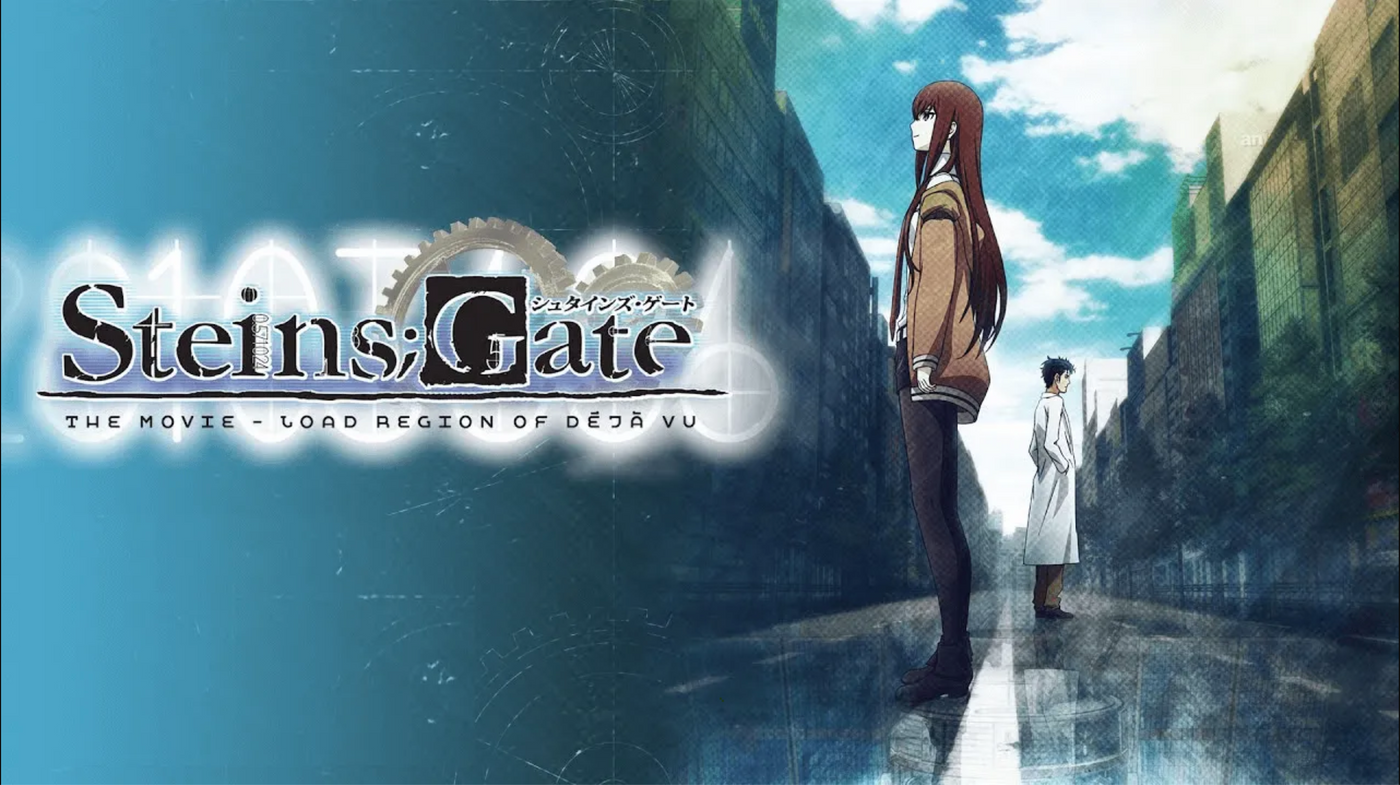
畢業於中正大學心理和哲學系,現就讀陽明交通大學社會與文化研究所。曾在關鍵評論網擔任書評專欄作者。文章主要投稿、刊登於 香港 微批paratext 或 虛詞.無形網站,多為文學、哲學類性質。另也有動漫評論發表於U-ACG。 信箱:f0921918962@gmail.com 信箱:f0921918962@gmail.com
Heidegger X "Gate of Steins: the sense of sight in the load field": The essence of human beings is human memory
Heidegger once said in his masterpiece "Being and Time": "Man is a temporal being". To put this sentence in philosophical terms, it may become difficult to understand, or even want to continue reading. But if we look through the anime "Stone Gate", we find that this problem seems to have become simpler, and it even gives us a very close feeling... Because the sentence "people are temporal beings" seems to be saying that : Human memory is the essence of human beings. The relationship between existence and time is actually memory.
"How are space and time united? Are they usually united, are they pulled together ostensibly side by side or alternately? Or are they originally united? Do they come from a common source, a The third, a more primitive thing that is neither space nor time? …”
That which is more "primitive" than time and space, says Heidegger, is "existence" - the union of space and time. But what exactly is "existence"? So he continued to make all kinds of mysterious, dizzying and somewhat charming discussions.
"What we call spacetime usually means what we really mean when we use the word, is that we usually perceive a certain period of time in spacetime. And say: in a hundred years, what we really mean— —just something like time...and the composition of the word 'space-time' tells us in a certain sense: time and space are inherently unified in nature."
I have often wondered... If Heidegger remembered the word "memory" at the time, and imported this concept into his thinking, would his philosophy have become less mysterious because of this? And in turn become more loving? Because whether it's "something more 'primitive' than time and space" or "we usually perceive a certain period of time in space and time", "something like time", "time and space are inherently unified" Sentences such as “nature”, etc., all remind people of “memory”, which is like time but not time, like space but not like space.
This makes us not think about it this way: if for Heidegger, "existence" is a thing that makes time and space closely combine, and then forms "for-itself" (making external things become themselves and unfold and manifest in them) The presence. Then the "root" that allows the "existence" of oneself to exist - can it be human memory? Because there seems to be only memory, it makes people realize that their existence is not just living, but a sense of time and space - that is, the "existence" that makes the past, present, and future expected to exist for themselves. .

This is probably why the author of "SteinsGate" suddenly asked Kotorisu and Okabe to mention Heidegger's idea: man is a temporal being, and made the book "Existence and Time" appear on Okabe's bookshelf. reason. It implies that Steins;Gate is not just a simple sci-fi anime, but a philosophical masterpiece reflecting on existence, memory, and time. It reflects the relevant interpretation of Heidegger's philosophy in this work. It just makes the author feel the influence of Heidegger's philosophy on this work, which is actually his theatrical version. Because this work deals directly with the issue of "existence".
In the theatrical version of "Stone Gate" - "The Sense of Sight in the Loaded Field", Okabe kept changing the future through the time machine, traveling through and experiencing different possible worlds (that is, different world lines). And finally reached a world where his childhood sweethearts - Shin Yuri and his lover - Hong Lixi will not die, and the third world war and SERN scientific institutions will become a totalitarian government to rule the world in the future. A world line called Steins Gate.
But the bad luck didn't end there. Okabe, who has experienced different world lines, because only he has the ability to not forget the memory of the previous world line when traveling through the world line. Therefore, in this new world line, people around me don't know how painful or profound experiences and events Okabe and them have experienced in many other world lines.
Correctly speaking, when we say that Okabe travels from one world line to another, such a description is not accurate. Because it is not Okabe who travels to another world line, but Okabe, who exists in this world line, transmits his own memory of this world line to Okabe's brain in another world line through a time machine. In the process of transmission, in fact, the memories of all people in this world line will also be transmitted to "self" in another world line. But the memory transfer of other people is not complete. When the memory that occurs in this world line is transferred to the "self" in that world line, it does not become a memory, but becomes a dream of a fragment that the self in another world line will do at night. . And only Okabe's memory transfer was completely successful. That's why he remembered what he had experienced in other worlds. However, such transmission is strictly speaking not pure transmission, but a further substitution. Because when Okabe in another world line receives the transmitted memory, he will forget his own memory in the original world line, and become like Okabe who came from another world line completely, so he must ask his friends. His past in this world line, because after receiving his own memory in another world line, he forgot his memory in this world line.
Memories from a different world line replaced the memories of Okabe, who originally lived on the world line of Steins;Gate. Such Okabe, where his past exists, becomes other memories that do not exist in this world line. And the memory that was originally in this world line, I don't know whether it disappeared, or it became a dream that was soon forgotten and could never be awakened again. So one day, Okabe suddenly disappeared on this world line. At the moment of disappearance, the people around him suddenly forgot about this person, and all the memories about Okabe became a sense of sight in the play, or a figure that appeared in a trance in a dream. It's only at moments that I feel like there's someone living next to me, but I can't remember who he is.
Among these people, only Okabe's lover, Kurisu, has not completely forgotten about this person. Although she had forgotten about Okabe for a while, she suddenly remembered Okabe's existence through Okabe's gift of the special fork she had always wanted. And made a time machine to go back to the past, trying to save the "disappearance" of Okabe's "existence" (memory).
In "Technology and Time", Stigler believes that through technology, people don't have to spend too much brainpower to remember all kinds of miscellaneous matters, but just when they need it, they can "call files, books, and videos". "When you come out, you can recall what you have recorded and remembered. This phenomenon is therefore called the "externalization of knowledge" or "externalization of memory" of technology. Technology, therefore, will not be just a mere foreign object, but, with the development of human history, has shaped the way human memory is. It even constructs the sense of time when memories are formed.
As a result, technology has opposite sides to people. On the one hand, with the emergence of technology, people can easily forget some things, because he knows that he can forget them. On the other hand, the development of technology has also allowed people to "remember" a large amount of information. What Stigler is worried about is whether one aspect of technology will slowly overwhelm the other in the future, that is, people will no longer "recall" through technology, but just regard technology as a database that is meaningless to themselves. The shock of receiving a large amount of information every day has paralyzed attention, and has no time to reflect or reflect. Since then, it has become an information-impulsive creature. Staying in the "now", there is no past and no future.
The nature of technology, which is one with two sides, has a very wonderful performance in the animation of the "Stone Gate" series. Whether it's Okabe in "Steins; Gate" or Kurisu in "The Sense of Seeing in the Loaded Field", they all recall the experiences they have experienced through the "externalization of memory" that Stigler said. . But also through the technology (time machine) to stay and wander in different "presents", I don't know what kind of past to choose and what kind of future to achieve.
Changing the past is risky. If you are not careful, not only will you fail to change what you want to change, but you will also turn some cherished relationships in the future into memories that didn't happen and don't exist. And "no one remembers what they remember, it's painful".
In the end, she finally thought of the way to save Okabe's disappearance, which is to return to Okabe's childhood in this world line, implant a profound experience (first kiss), and form Okabe in this world line, even if he later received the memory of other world lines, Memories of the past that will never be forgotten. As a result, Okabe reappeared and "existed" on this world line.
"SteinsGate" tells us that memory is an "existence" that can never be replaced, whether it is for others or ourselves. The reason why the "existence" of others is so important is that the "existence" of others often enters into the "existence" that constitutes our own existence in the form of memory. Okabe asked Kurisu to forget herself, lest she live too painfully in the future, but in fact this is almost impossible, because if someone else's existence has already become his own "existence" in the way of memory, then forgetting it is almost impossible. It is equivalent to denying the "existence" of a certain part of oneself. As Hong Lixi said in the play:
"People are always looking at something important other than themselves."
Memory is an indispensable way for "existence" to form itself through external objects, and maintains the relationship between "existence" and the world. Heidegger said that man is a temporal being, which means that the essence of man is time that is constantly changing. But perhaps the best understanding is that the essence of human beings is actually the memory formed by oneself, others and external objects. Once the memory is different, there are also different people. And if a person has no memory, it is almost impossible to know himself, forming the so-called "self".

(The article is simultaneously published on the following blog)
Medium: https://pse.is/R7YT3
Square: https://vocus.cc/1111/home
FB Fan Special: https://pse.is/PEVPU
Extended article:
Written after Steins;Gate: Worldlines and the Lonely Observer
Like my work?
Don't forget to support or like, so I know you are with me..
Comment…